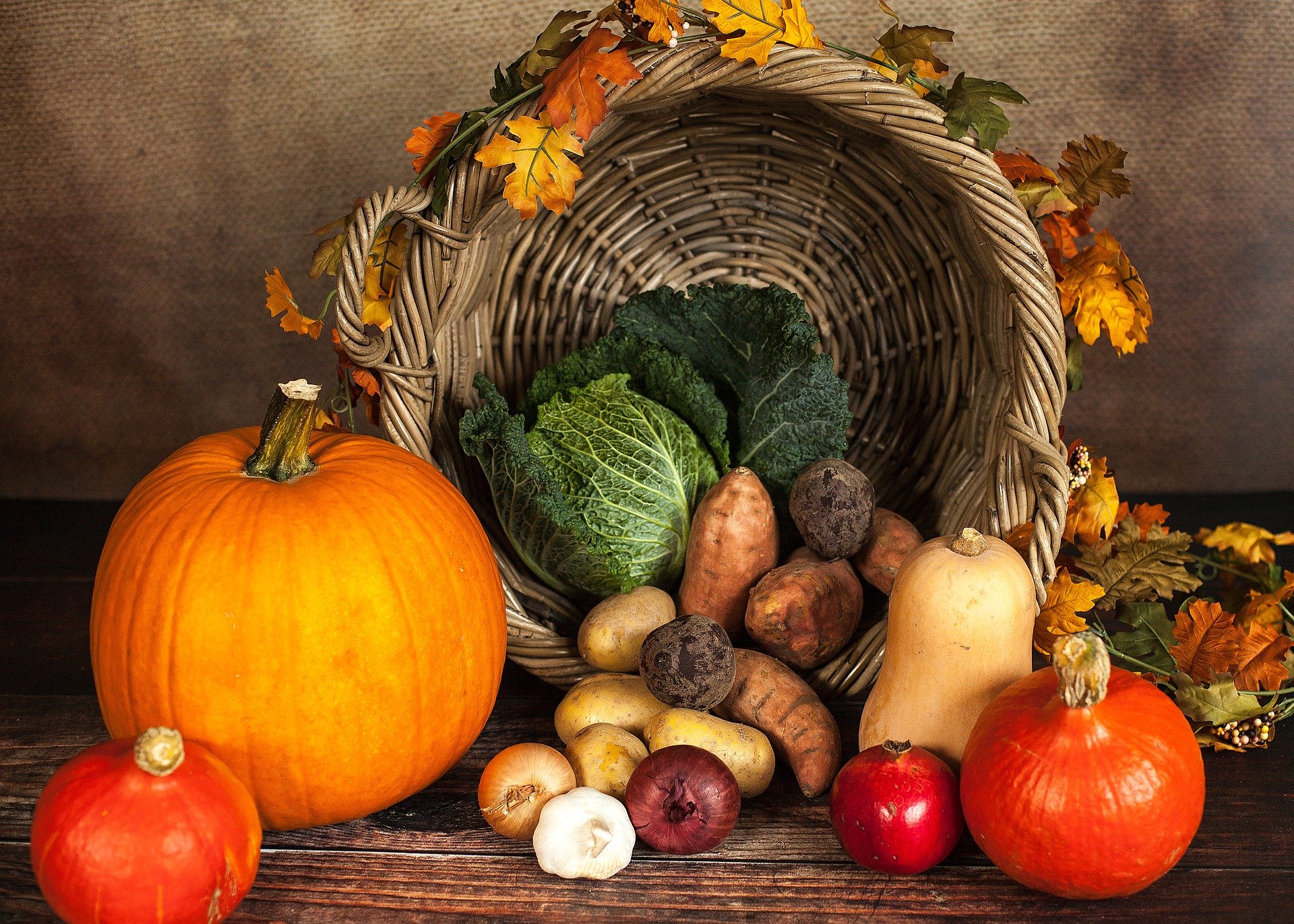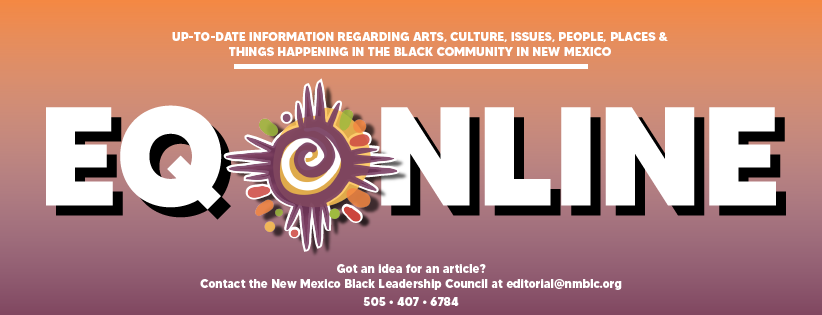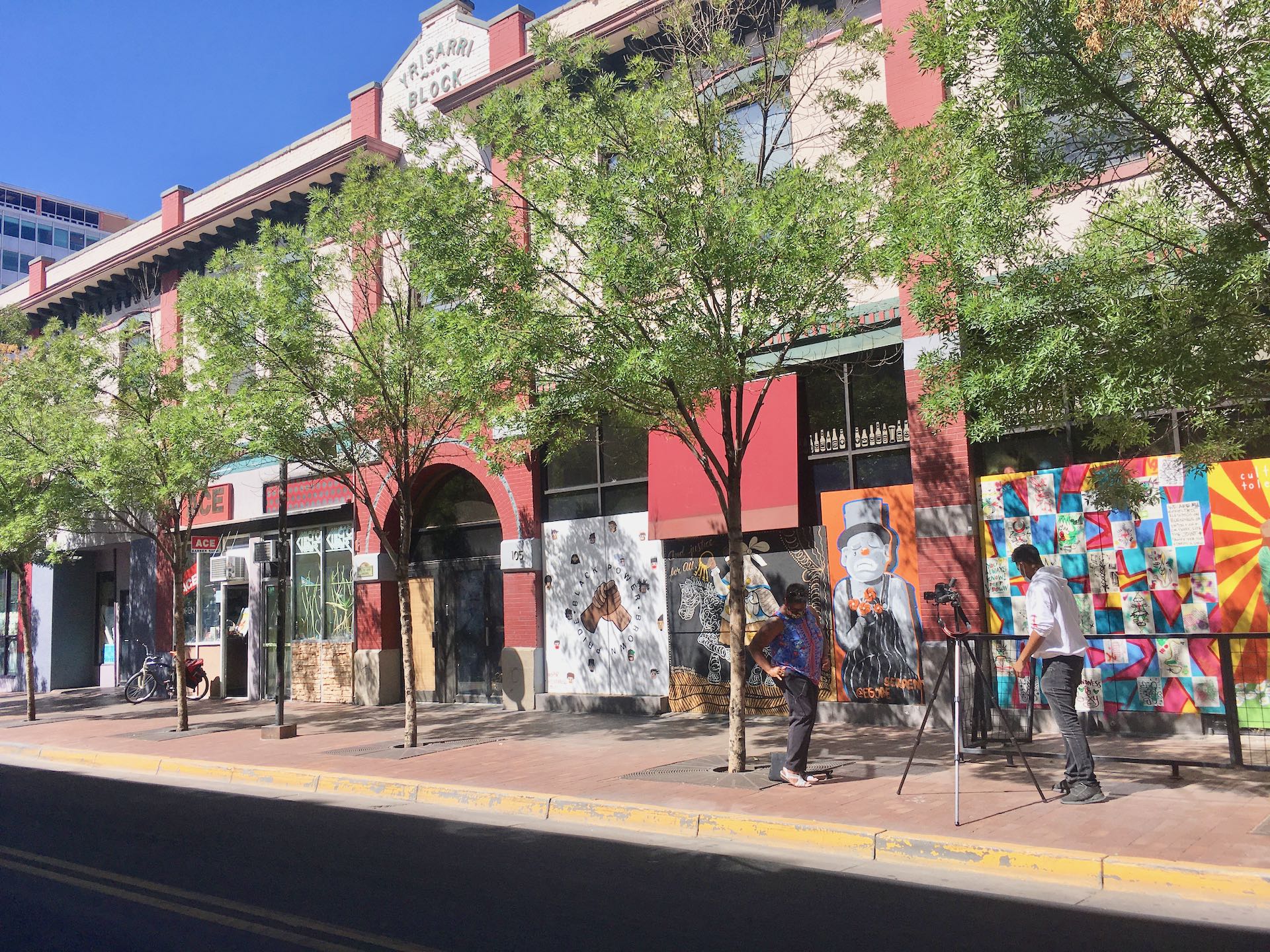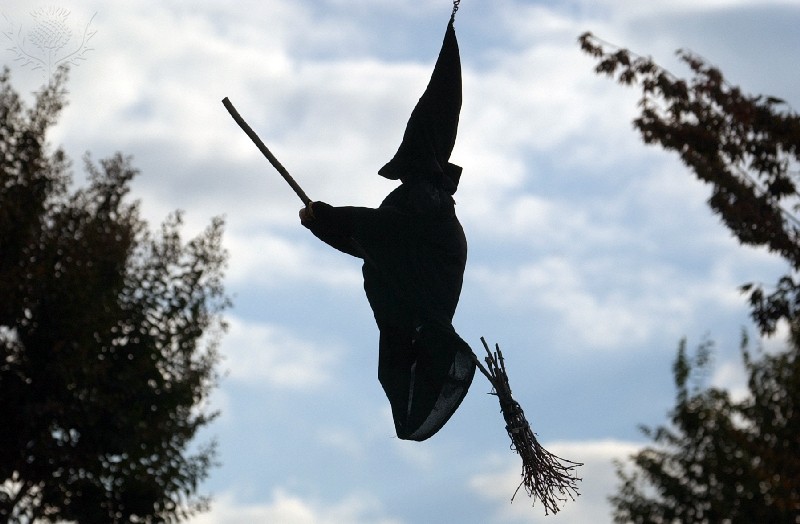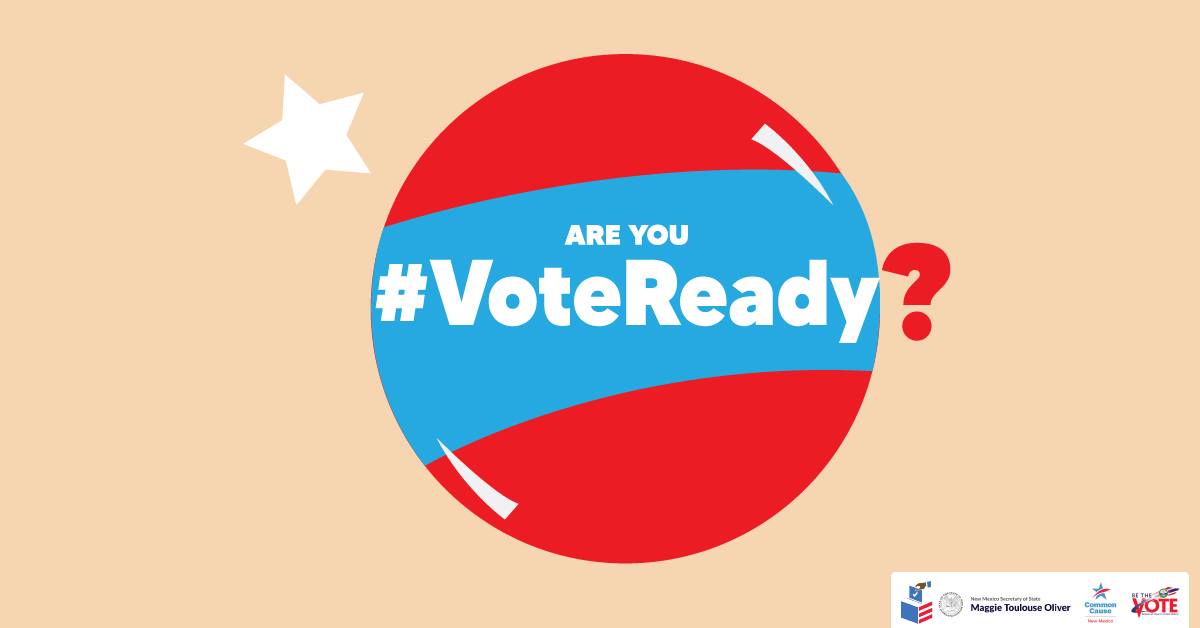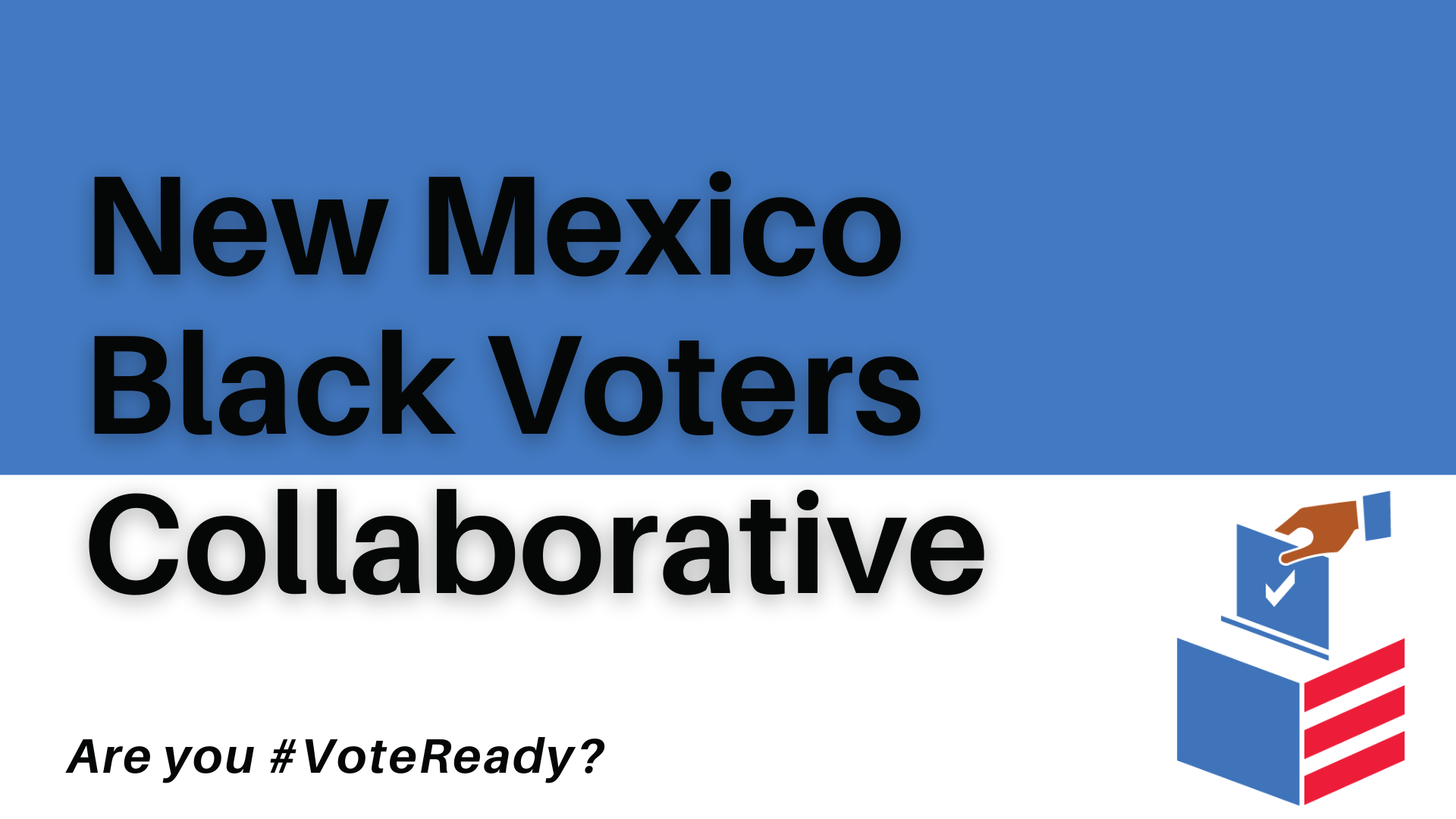While Thanksgiving is usually an occasion of joy and bonding for the Black community, the holiday bears a re-examination during the turmoil of 2020.
The year 2020 is a time in our country where many people are questioning what they thought they knew about America’s history, values, and traditions. Thanksgiving is one of those holidays that many in the Black community have mixed feelings about. For those who celebrate Thanksgiving, it’s a time for family reunion, gratitude and signature dishes. The original focus of this post was the NMBLC staff’s favorite T-Day dish. Most of us, however, will not be spending the holiday as we usually do, because of the Coronavirus. That makes re-examining this holiday all the more timely.
The Thanksgiving Myth
Americans were generally taught that the first Thanksgiving holiday was about a peaceful breaking of bread between the Pilgrims and the Native Americans in 1621. In reality, it was more like an unexpected meeting between New England colonists who were out hunting, and members of the Wampanoag tribe who showed up to investigate the ruckus. A shared feast followed over the next few days, and a treaty was sealed between the two groups. What’s often left out of the story, however, is that for the next fifty years, the alliance was tested by colonial land expansion, the spread of disease, and the exploitation of the Wampanoag tribe’s resources. When the treaty ended with King Phillips’ war in 1675, hundreds of colonists and thousands of Native Americans were killed.
About the same time the Native Americans were being massacred by the colonists, kidnapped slaves were being brought over to the colonies from Africa.
The Black community has a complicated relationship with Thanksgiving
Thanksgiving has been a problematic concern for many people of color, including African Americans, even before now.
In a 2015 article in Ebony magazine, Vann Newkirk of The Atlantic wrote “The love that Black people have for the Thanksgiving holiday would seem to fly in the face of our shared history with American Indians, which is defined greatly by oppression at the hands of the White majority.”
Kymone Freeman added, “How can we honor a day that celebrates the White man’s Manifest Destiny, a legacy of slavery, land robbery, culture wrecking and the outright extermination of both wild beasts and tame men?”
The love that Black people have for the Thanksgiving holiday would seem to fly in the face of our shared history with American Indians
— Vann Newkirk, The Atlantic
Some of our NMBLC members do not celebrate Thanksgiving for similar reasons. (Scroll to the end of this post to see more.)
During slavery, Thanksgiving was one of the holidays that offered enslaved Black community respite from their days of forced labor and violent subjugation. Families members who had been separated by auction could go visit each other on neighboring plantations.
In modern times, Thanksgiving can still provide relief from day to day oppression to Black and marginalized people. It’s often the one time a year that family can reunite with those who are far away. It can be a place of safety from the often hostile interactions with the white world, and a break from cultural acceptability performance. Thanksgiving celebrations fortify the bonds of communion sorely needed among humans, especially marginalized communities. Black people can share and enjoy dishes that reflect the African-American culture, such as sweet potato pie or mac and cheese.
Harvest celebrations exist outside the American Thanksgiving

The original 1621 Thanksgiving was a routine harvest celebration that had been celebrated by the colonists and indigenous peoples before and since. It wasn’t until 1863 that Abraham Lincoln declared Thanksgiving a national holiday. Ironically enough, his motivation was to “heal the wounds of the nation” caused by the Civil War.
Harvest and gratitude celebrations have been going on across the globe for centuries. Native Americans celebrate blessings several times a year. In an article published by Indian Country Today, Ramona Peters, the Mashpee Wampanoag Tribe’s Tribal Historic Preservation Officer, says, “We give thanks more than once a year in formal ceremony for different season, for the green corn thanksgiving, for the arrival of certain fish species, whales, the first snow, our new year in May—there are so many ceremonies and I think most cultures have similar traditions.”
“We give thanks more than once a year in formal ceremony.”
— Ramona Peters, of the Mashpee Wampanoag Tribe
In New Mexico alone, over a dozen different feast celebrations are held among the various Pueblos September through November. Globally, there are the Moon Festival in China, Taiwan, and Vietnam; Sukkot, an autumn Jewish festival celebrated in Israel; and the Yam Festival in Ghana, Papua New Guinea and Nigeria.
Thanksgiving and the Black community in 2020
Now, as we head into a second lockdown in New Mexico and an alarming spike in COVID cases across the nation, many will be forced to spend the Thanksgiving holiday alone. As mentioned earlier, the original focus of this post was favorite Thanksgiving dishes in the Black community and fond memories about them. How quickly things changed. The responses reveal a bittersweet appreciation of times past. Now we can only hope that next year, however we celebrate the autumn season, we can gather again in person and enjoy each other‘s signature dishes.
Those who don’t celebrate Thanksgiving take this time to reflect and educate on the complicated history surrounding the Thanksgiving holiday.
Read memories and musings by the NMBLC staff about Thanksgiving this sobering holiday season.
NMBLC Memories of Thanksgivings Past
Cathryn McGill, Founder/CEO

Cathy McGill’s mother, Rubye Carter
In Cathy’s Words: Cornbread dressing was perfected by my beloved mother
My favorite Thanksgiving dish is CORNBREAD. DRESSING. Cornbread dressing is everything. And it needs to be stuffed inside a perfectly cooked juicy turkey (I only like dark meat). My most poignant memory of Thanksgiving was in November 2008—the last Thanksgiving I spent with my beloved mother, Rubye Carter. Albeit ill and lacking energy, she got herself to that kitchen table I remember so well and made up the cornbread, cut up the celery and onions with the perfect blend of spices and made her signature dressing just as expertly as she always had. My only contribution was to put it in the oven for her. She made her transition less than two weeks later – too soon and way before any of us were ready but that moment and Rubye’s cornbread dressing are indelibly etched on my brain, in my heart and most assuredly on my thighs forever.
Megan Bott, Marketing and Communications Manager

Megan Bott loves her mother’s sweet potato pie.
In Megan’s Words: Sweet potato pie is one of the reasons I love Thanksgiving
My mom’s sweet potato pie is my most favorite Thanksgiving dish. It is actually one of the reasons why I love Thanksgiving. No one can replicate this sweet potato pie that my mom makes. Every year she makes one just for my husband and I because we will eat the entire thing ourselves (not all in one day, more like 3 tops). I always have some the night of Thanksgiving and sometimes I top it with marshmallows and pop it in the microwave to melt the marshmallow. The following day I always eat it for breakfast too. My in-laws request a pie of their own from my mom every year now! The pie-fame is well deserved!
Shawna Brown, Deputy Director
In Shawna’s Words: The American holiday of Thanksgiving is an opportunity to acknowledge our painful past.
The idea of Thanksgiving has evolved for me over time. Like most youth in America, I was taught that Thanksgiving represented a coming together of different cultures, and visually represented peace between Indigenous Wampanoag people and Pilgrims. However, that story and its imagery creates a false narrative and continues the erasure of Indigenous people’s experiences pre and post colonization. It visually marks the “blending of cultures” but negates to address the wars, stolen lands, and genocide caused by European settlers and perpetuated by the United States government. So, it is safe to say that I don’t “celebrate Thanksgiving” but many people do, honoring this day as a moment to pause and give thanks for what we have. So when invited to their Thanksgiving dinners, I use them as a reflective opportunity. I share the importance of acknowledging the stolen land that we gather on (the unceded lands of the Tiwa speaking peoples of the Sandia and Isleta Pueblos). This moment of acknowledgement recognizes our painful past, honors those whose blood was violently shed, and lends us an opportunity to reimagine a new future based in truth. And for that opportunity, I give thanks.
Shannon Moreau, Operations

Shannon Moreau and her mother on their last Thanksgiving
In Shannon’s Words: Thanksgiving’s just not the same since Mom died
When I was younger, Thanksgiving was about going to the farmhouse of my grandparents and eating all of the delicious home-cooked dishes that my grandmother made. As I got older and my mom drifted away from her parents, Thanksgiving became about perfecting my own dishes and spending time with my mother. After my mother passed away, Thanksgiving became about being thankful for my friends and the love that I do have in my life. Now that my mom is gone, I don’t enjoy cooking for Thanksgiving at all. In addition, during the last few months of lockdown, I converted entirely to a vegan diet. Something about the current crisis spurred me to think about ways to support my health as well as the health of the planet. So this year I’m putting in an order at the La Montanita Co-op for a vegan pumpkin pie. It’s my new favorite way to imbibe on Thanksgiving. Besides mimosas before noon, that is.
Thanksgiving Resources
If you need assistance this holiday season, contact one of the following organizations for help:
For comprehensive resources in the city of Albuquerque, check out the ACRG: https://abqcrg.org/
Food
Roadrunner Food Bank: https://www.rrfb.org/find-help/find-food/
Drive Through Grocery Pickup for Low Income Seniors: https://www.bernco.gov/general-news.aspx?aa431b263de84365b8eaae43ab63bd6dblogPostId=04afe988d86046008c5bc76bdca19f9b
Steelbridge will be distributing pre-packaged food from 11 a.m. to 1 p.m. on Tuesday, Nov. 24 at four different locations in Albuquerque: Coors and Central, Los Altos park, Caravan parking lot (7605 Central NE, east of Louisiana) and their building at 2021 2nd St. For more information, call 505-346-4673.
Joy Junction will hand out individual boxed meals from their Lifeline of Hope mobile food trucks on Wednesday, Nov. 25.
KRQE’s list of additional food resources: https://www.krqe.com/krqe-plus/community-reports/where-you-can-get-free-thanksgiving-meals-in-new-mexico/
Mental Health
New Mexico Crisis and Access Line – 1-855-NMCRISIS (1-855-662-7474)
Behavioral Health App – https://cbs4local.com/news/local/new-mexico-unveils-app-for-behavioral-health-support
Agora Crisis Center – agoracares.org, 505-277-3013, 855-505-4505
National Suicide Prevention Lifeline – 1-800-273-TALK
